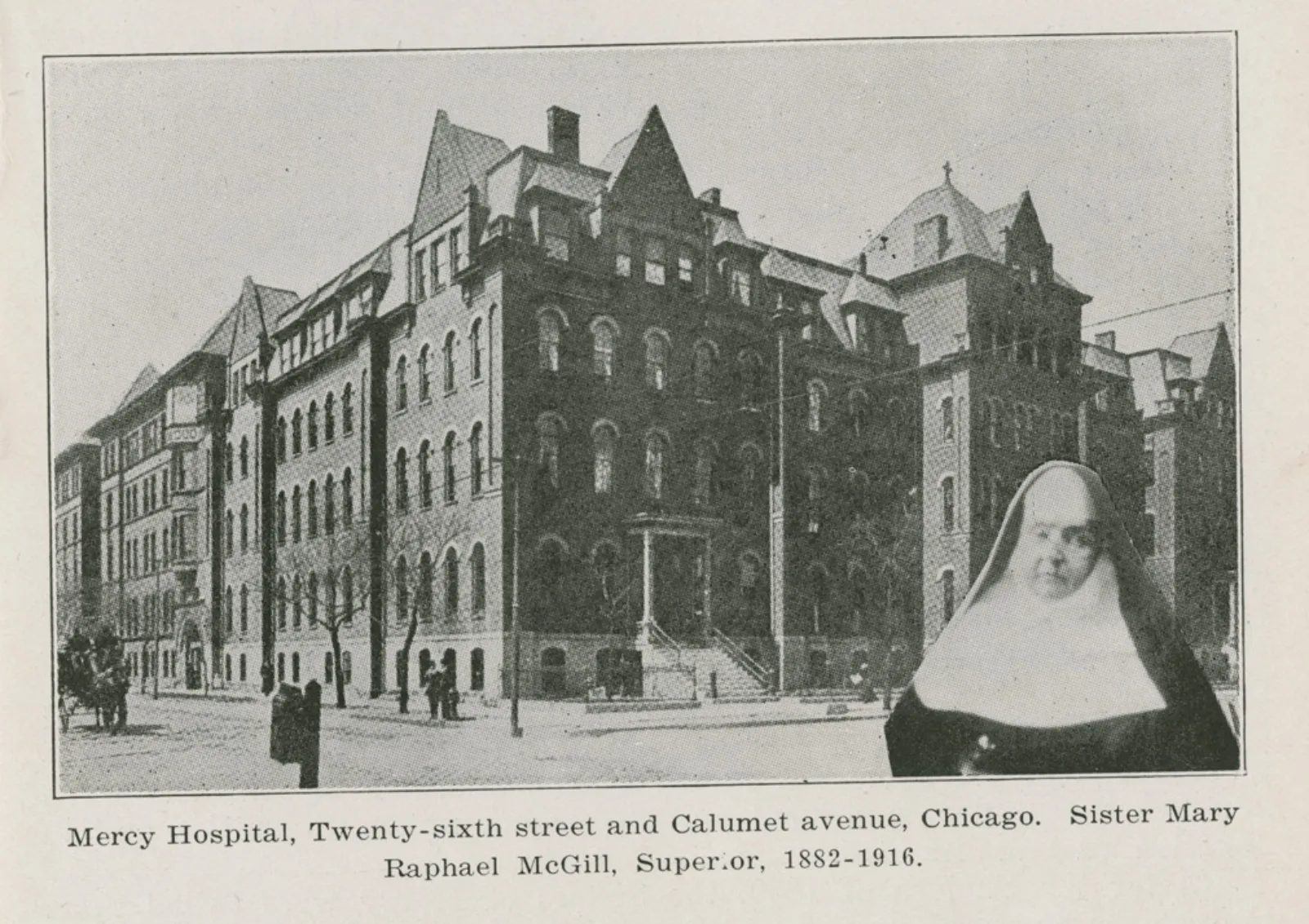Listen to an audio recording of this program.
The panel will explore connections between religious practice and social activism in the lives of Midwestern women and their communities, focusing on Catholic, Protestant, and Jewish traditions of the 19th and 20th centuries.
Schedule
9 to 9:30 am: Coffee and Continental Breakfast
9:30-9:55 am: Introduction
Ann Durkin Keating
9:55-10:20 am: “'Souls are Trained and Prepared for the Other': The Mercy Charism and Catholic Female Education in Chicago, 1840s-1940s, A Comparative Study"
Mary Beth Fraser Connolly
10:20-10:45 am: “Frances Willard and Gospel Temperance Politics in Illinois during the Gilded Age”
Rachel Bohlmann
10:45-11 am: Break
11-11:25 am: "With a Capital 'J' and a Capital 'W': The Emergence of Chicago Jewish Women in the Work of Political, Religious, and Social Reform"
Karla Goldman
11:25-11:50 am: "Woman's Work, An Urban World: Black Women Preachers in Chicago during the Great Migration"
Wallace Best
11:50 am-12:30 pm: Panel Discussion
Moderated by Ann Durkin Keating
12:30-1 pm: Q&A
Download a PDF flyer for this event to post and distribute, and explore relations Newberry materials with our Collection Quick Guide to Women, Religion, and Social Change.
Speakers
Wallace Best, Professor of Religion and African American Studies at Princeton University, is the author of Passionately Human, No Less Divine: Religion and Culture in Black Chicago, 1915-1952 and Langston’s Salvation: American Religion and the Bard of Harlem. He is currently at work on an anthology titled Elder Lucy Smith: Documents from the Life of a Pentecostal Woman Preacher.
Rachel Bohlmann is the American History Librarian at the University of Notre Dame. She holds a PhD in history from the University of Iowa.
Mary Beth Fraser Connolly is Continuing Lecturer in History and Concurrent Enrollment Program Liaison for History and Political Science at Purdue University Northwest. She is a historian of American women and religion with a particular interest in Catholic women religious.
Ann Durkin Keating, a historian of urban and suburban studies, teaches broadly in U.S. history at North Central College. She was co-editor of the Encyclopedia of Chicago (University of Chicago Press, 2004), a print and online project.
Karla Goldman is the Sol Drachler Professor of Social Work and Professor of Judaic Studies at the University of Michigan where she directs the Jewish Communal Leadership. Her research focuses on how American Jewish experience reflects the social, gender, class, racial, and political identities available within broader American contexts like cities, social movements, and universities.
Paper Abstracts
“'Souls are Trained and Prepared for the Other': The Mercy Charism and Catholic Female Education in Chicago, 1840s-1940s, A Comparative Study"
This paper will compare the education ministry of the Sisters of Mercy in the second half of the nineteenth century to that of the first half of the twentieth century. In the formative years of the nineteenth century, the Mercys offered affordable parish school education as well as pension or academy schools for paying students. This ministry evolved in the twentieth century to reach even more parish school children and two high schools and a college for women. Countless young women were formed by Mercy education amidst a changing church in the decades prior to Vatican II. This presentation comes out of Fraser Connolly’s research for her book-long study of the history of Sisters of Mercy Chicago Regional Community from 1846 to 2008, Women of Faith: The Chicago Sisters of Mercy and the Evolution of a Religious Community.
“Frances Willard and Gospel Temperance Politics in Illinois during the Gilded Age”
The Woman's Christian Temperance Union in Chicago and in Illinois used gospel temperance meetings-revival-type services that ended in dramatic and very public temperance pledge signing-to advance their political reforms. The women offered a gospel message of forgiveness while insisting that their male converts pledge their public support for the women's temperance reforms. Willard and her fellow reformers used these commitments to claim new rights for women and for changes in political and family culture.
"With a Capital 'J' and a Capital 'W': The Emergence of Chicago Jewish Women in the Work of Political, Religious, and Social Reform"
This paper will explore the emergence of Chicago Jewish women into public roles within American Judaism and the city of Chicago. As leaders in the creation of the first national Jewish women's organization, Chicago Jewish women in the 1890s opened the first channels for on-going public activism and identities for Jewish women across the United States. As advocates for progressive reform in Chicago, Jewish women helped to transform the city in matters ranging from the provision of public health measures for school children to the creation of public beaches for the city as a whole.
"Woman's Work, An Urban World: Black Women Preachers in Chicago during the Great Migration"
Some of the most profound transformations that occurred in Chicago during the Great Migration happened in the lives of black women. Wallace Best will explore an aspect of those transformations by discussing the lives and ministerial work of several black women preachers who shaped and were shaped by the new urban context. Their lives and work demonstrated emphatically both the promises and the perils of life in the city.
This program bridges two major interdisciplinary projects at the Newberry, Religious Change, 1450-1700 and What is the Midwest? The projects are generously supported by a grant from The Andrew W. Mellon Foundation.
Your generosity is vital in keeping the library's programs, exhibitions, and reading rooms free and accessible to everyone. Make a donation today.
Excuse our dust!!!
Beginning January 2018 the Newberry is undertaking renovation of much of the ground floor. Ruggles Hall will not be affected, but please check this link frequently for the latest conditions - which exterior doors are open or closed, where to find an accessible entrance, which restrooms are available, etc.

